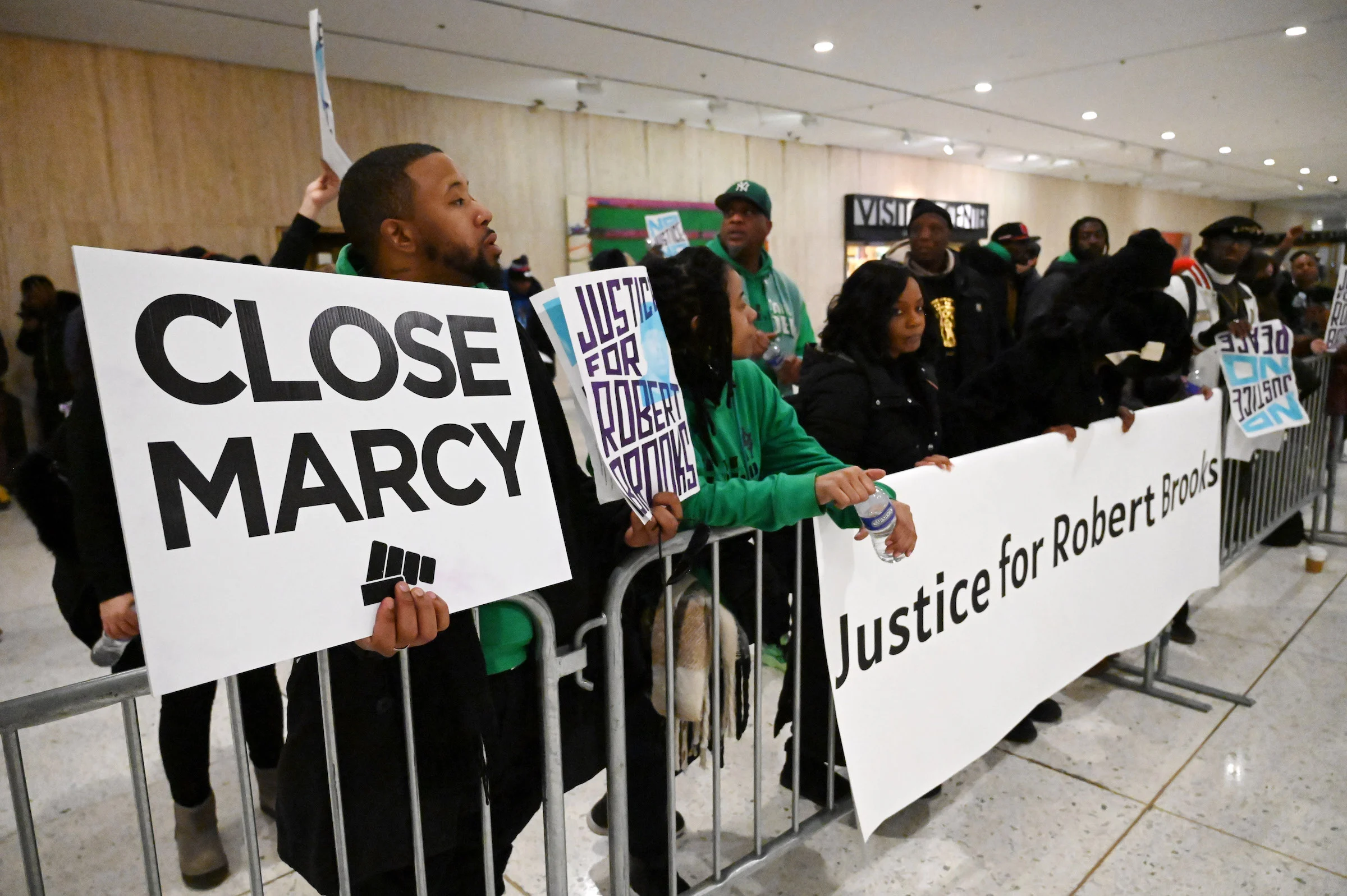By Elizabeth Weill-Greenberg
Copyright truthout

People in a New York prison’s mental health unit are kept in their cells 24 hours a day, with the exception of an occasional “callout,” and denied therapeutic services, according to a lawsuit filed this week by Disability Rights New York and Prisoners’ Legal Services of New York against New York State Department of Corrections and Community Supervision (DOCCS), among others.
“Defendants are knowingly depriving individuals in the Residential Mental Health Unit (“RMHU”) at Marcy Correctional Facility (“Marcy”) of all out-of-cell programming and mental health and medical treatment and keeping them almost entirely isolated,” the lawsuit states.
The unit was opened more than 15 years ago in response to a lawsuit filed by Disability Advocates, Inc., Prisoners’ Legal Services, and others, which alleged that people with serious mental illness were kept in isolation and denied mental health services, the same conditions that allegedly exist today.
State regulations mandate that people in the RMHU are offered seven hours of out-of-cell time each day — four hours of therapeutic programming and/or mental health treatment, and three hours for group programming, services, treatment, recreation and/or meals.
“Now, sixteen years after its opening, Defendants are operating the Marcy RMHU in precisely the same manner as the segregated confinement housing units it was created to redress,” the lawsuit states.
The suit alleges that some people in the unit were receiving out-of-cell programming and services until the correctional officers went on an illegal strike in February after the Times Union reported that officers involved in the death of Robert Brooks would be criminally charged. In December, Marcy prison guards beat Brooks while he was handcuffed and in the prison’s medical ward. The brutal attack was captured by the officers’ body cameras, which they thought they had turned off.
There are currently about 95 people housed in Marcy’s RMHU. They receive their meals through a slot in their steel cell door — the same opening that is used to handcuff them before they leave the cell. The unit lacks air conditioning, causing the cells to become unbearably hot in the summer.
People in the unit are confined to their cells and recreation pens “all day, every day absent an emergency, outside visit, disciplinary hearing, or a brief medical encounter, such as for insulin injection,” the suit says. Counselors, therapists, and psychiatrists speak with the men through the cell’s grate-covered window, which, for some people, is also covered with plexiglass.
A recreation pen is attached to each cell. The pens, described in the suit as “an empty cage with a solid ceiling,” are often “filthy from both debris and human feces that are frequently thrown by incarcerated individuals from their recreation pens.”
To receive medical or mental health care, people in the unit must “yell through the grate-covered window in their cell door.” Staff typically ignore their calls or are delayed in responding, the suit says.
On August 6, a person yelled “SUICIDE” from their cell. Staff did not show up until two to five minutes later, and mental health staff arrived five to 10 minutes after that. The person was not brought out of his cell for assessment or observation, the suit says.
One of the plaintiffs, Jose Cornejo, who has been in the unit since 2024, reported that in July he heard another incarcerated person scream for mental health help because he was in crisis. The man did not receive mental health treatment, and Cornejo saw him hang himself, according to the complaint.
Since February, at least two people on the unit have attempted suicide, and, in the last four months, at least three have gone on hunger strike to protest the conditions, according to the complaint. Dejour Nesmith, one of the strikers, stopped his hunger strike because he was shown a piece of paper that said “force feed order.”
Another plaintiff, Tyrell Escobar, reported that an officer assaulted him in August. Escobar has been diagnosed with post-traumatic stress disorder (PTSD), among other mental health disorders.
“He called me a “f***ing n***er” and slammed my fingers in the window of the cell door,” Escobar said, as per the complaint.
The suit says Escobar’s ring finger on his right hand “appears to be broken and his middle finger is bruised and crooked.” He did not receive X-rays until almost three weeks after the attack.
Plaintiff Luis Garcia has put in about 10 “sick call” slips, but has not been taken to see a nurse or doctor. Although he’s “classified as an OMH Level 1SV patient, meaning he requires the highest level of services offered by OMH [Office of Mental Health] in DOCCS,” Garcia is rarely taken out of his cell.
Since he arrived at the unit in March, he has often thought about suicide.
“[My] mental health is getting worse because of being confined to my cell,” Garcia said, as per the complaint. “I do not know how much longer I can survive this treatment.”



